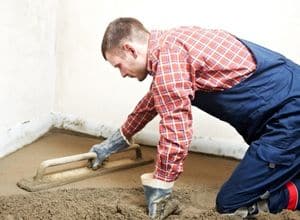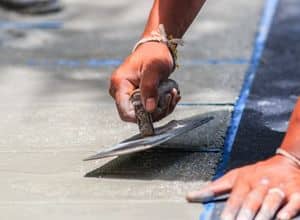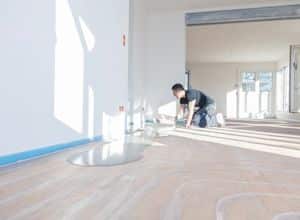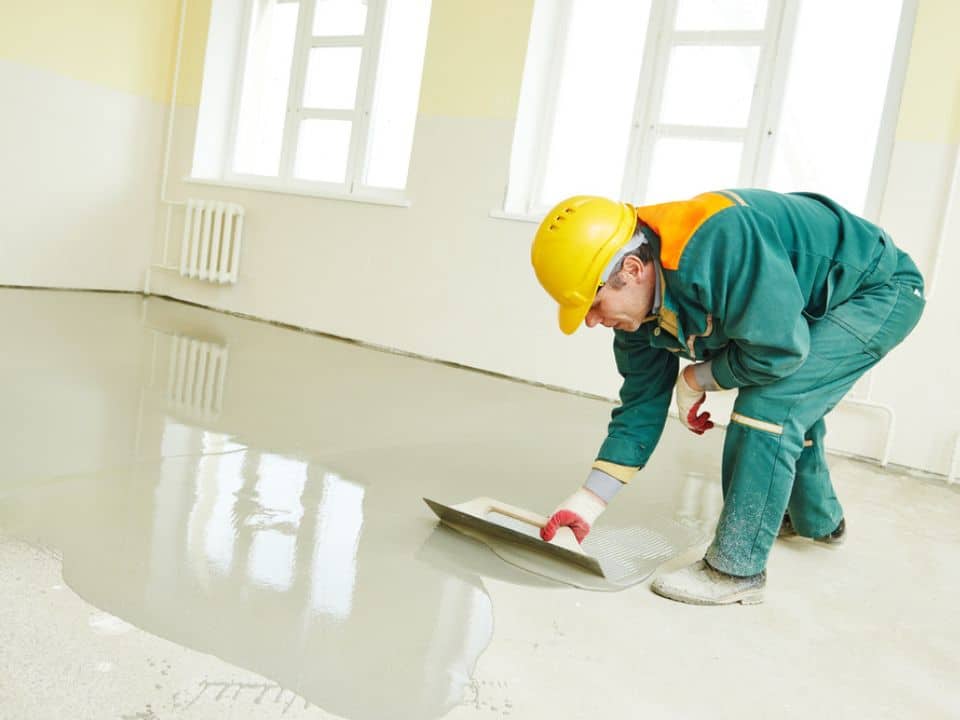Like many homeowners, you might wonder if your property needs professional concrete refinishing. Concrete is an extremely durable material, so if your driveway, walkways, porch steps, patio, and other slabs are in excellent condition right now, you may not need expert concrete repair for a long time.
Nothing, however, lasts forever. Concrete slabs may develop flaws over time, and the problems will worsen if you don't take action.
High-quality concrete is a material that gives high levels of stability and support to various surfaces and enclosures, yet, several elements might cause early deterioration. Below are some of the most common:

Temperature Fluctuations - It is well known that concrete can withstand high temperatures, but if it is constantly subjected to severe hot and cold temperatures, it will begin to deteriorate, and you will need professional concrete refinishing. When moisture is put into the mix, this wear and tear accelerate. When water freezes on concrete, it expands dramatically. This may cause significant weakness.
Environmental Factors - Severe environmental conditions, such as seawater exposure, earthquakes, tornadoes, floods, ice formation, and tremors, put concrete in danger of deterioration. Extreme cracking, shifting, and other forms of damage are possible.
Excessive Weight - When concrete is subjected to excessive weight, it may buckle, fracture, chip, and distort. This is especially important in parking lots, foundations, and structural joints.
Chemical Exposure - Certain chemicals, such as deicing salts, acids, and chemical sulfates, may cause certain chemical reactions once they come into direct contact with concrete. Certain chemicals will deteriorate the concrete over time.
Corrosion - Frequent use of concrete and exposure to elements, chemicals, overloads, and other conditions accelerates the natural aging process and causes corrosion. Concrete deteriorates as a result of this corrosion.
Direct Impact - Certain sorts of direct impacts have the potential to degrade concrete very quickly. This includes blasting, machinery, equipment, and vehicles. If the damage is not fixed and the concrete is not rebuilt, cracks and weakness will ensue.
Call a local concrete repair contractor for professional concrete refinishing to retain curb appeal and keep your home safe if you observe any warning signs.
There are signs that tell you when you need professional concrete refinishing. By being acquainted with these indicators, you can guarantee that the concrete portions of your house stay sound and stable. Maintaining your concrete areas should be on your home maintenance checklist. Some of the most important warning indicators to watch for are:
Concrete coating is designed to expand and contract in response to changing temperatures and moving earth underneath. However, the flexibility of concrete covering breaks down with time, resulting in fissures. The issue arises when dirt, moisture, and other particles enter these gaps. This causes further damage to both the concrete covering and the concrete underneath.

Potholes, like cracks, are created by the earth underneath them expanding and contracting and frequently driving over the weak region. A pothole is more harmful than a crack since it may cause major damage to automobiles and trucks that drive over it.
You have a problem if you can feel dips and bumps as you walk around the concrete floor. This is sometimes the natural effect of the earth shifting underneath. This may also be caused by poor installation. Dirty equipment, a poor roller sleeve, or a failure to remove all sandblasting materials and debris may all result in hard lumps.
If your floor is regularly moist or cleaning spills appear more difficult, you have a water retention problem. This might imply one of two things. Either your concrete covering is no longer securely sealed, or vapor rises through the floor below. In either instance, professional concrete refinishing is required. If it's a vapor problem, you'll need to create a vapor barrier between the soil and your subfloor first.
Peeling or bubbling is an indication of poor installation. Air will get trapped inside the coating during the curing phase of the installation if the floor is not properly prepped, primed, and sealed. This is known as out-gassing, and a reputable contractor will know how to prevent it or fix it through professional concrete refinishing. When the coating is put on top of filthy concrete, it peels. The coating will not adhere correctly if all filth, oil, and moisture are not thoroughly removed.
There are several concrete floor coating colors and textures to pick from, and you have most likely given some attention to selecting the ideal design. A significant change in the color or overall look of your floor is more than just an insult to your aesthetic tastes; it might indicate moisture incursion. Before applying a new coating, ensure you don't have a vapor problem, just as you did with moisture. Otherwise, you'll be in the same situation in a few years.
Whether your concrete coating has to be redone due to a defective installation or after many years of usage, this is not a process you want to put off. The longer you wait, the more damage your concrete floor will sustain—and the more time and resources you will need to spend on repairs.
You should also remember that concrete is utilized to construct your home's foundation. It is critical that your home's foundation is properly maintained and that any concrete repairs are completed on time. In addition to the initial symptoms, the following are some other signs of concrete foundation damage:
Sticking doors and windows: If your windows and doors start to stick when you attempt to open or shut them, this is one of the indicators of concrete foundation degradation.
Cracks in the outside and internal walls: Exterior brick and interior drywall cracks might indicate concrete foundation deterioration and shifting.
Sinking floors include: If the flooring is sinking near the foundation, you should get professional help as soon as possible.
Wallpaper flaws include: Damaged foundations might give indicators such as your wallpaper creasing or ripping for no apparent reason.
Slanted floors: Floor slope is another issue that a broken concrete foundation may create. If your floors slope more than an inch every 15-20 feet, your foundation may need an inspection.
These indicators might suggest that professionals inspect your concrete foundation to identify what needs to be done.
Concrete is used in many parts of the construction of houses, buildings, and other structures, including foundations, porches, paths, and more. Though concrete is durable and dependable when correctly mixed and placed, it may also sustain damage such as fractures and erosion. You may do the repairs yourself if you have some DIY skills, or you can hire specialists to do professional concrete refinishing for you. Here are three good reasons why you need to hire a professional instead of doing it yourself for concrete repair:
Do-it-yourself solutions need you to have the ability to repair the concrete correctly, but it might take a lot of training and practice to do it right. There's also a greater chance that you, or the non-professional you hire to perform the DIY task for you, may make a mistake or not do it correctly. In the long term, this may need more time and money.

That is what makes hiring specialists for professional concrete refinishing so beneficial – professionals get extensive training and years of on-the-job experience to acquire the skills required to analyze the damage, establish a repair plan, procure the appropriate supplies, and apply the materials efficiently and accurately. This expertise also allows them to do the task more effectively, resulting in a speedier completion time. And, since someone else is doing it for you, you don't have to buy supplies and equipment to repair the damage yourself.
DIY concrete restoration might provide subpar results that do more damage than good. When concrete specialists tackle the damage, the concrete is far more likely to survive considerably longer and be less susceptible to future damage. It's also less likely to include errors, so you know the task is done correctly. This is because they understand the materials, equipment, and procedures to repair or level concrete, improving the possibility that the task will be completed as efficiently.
It's usually a good idea to repair concrete damage in a structure, particularly if you want to resell it. Repairing the damage may increase curb appeal and structural integrity (if the concrete repair is done on a portion of a building's or structure's foundation), resulting in increased property value. Furthermore, having professional concrete refinishing implies that the property will endure longer, which may boost property value, particularly if you have confirmation that an expert fixed it.
Because DIY concrete restoration might result in less trustworthy or durable outcomes, inspectors can often spot these DIY efforts and inform purchasers that they may have to pay for this, which can reduce the value of your house. Or, as part of the selling agreement, you may be compelled to pay for it.
In all situations, it's best to leave professional concrete refinishing to the pros so that a building, road, or another concrete form may last as long as possible.
